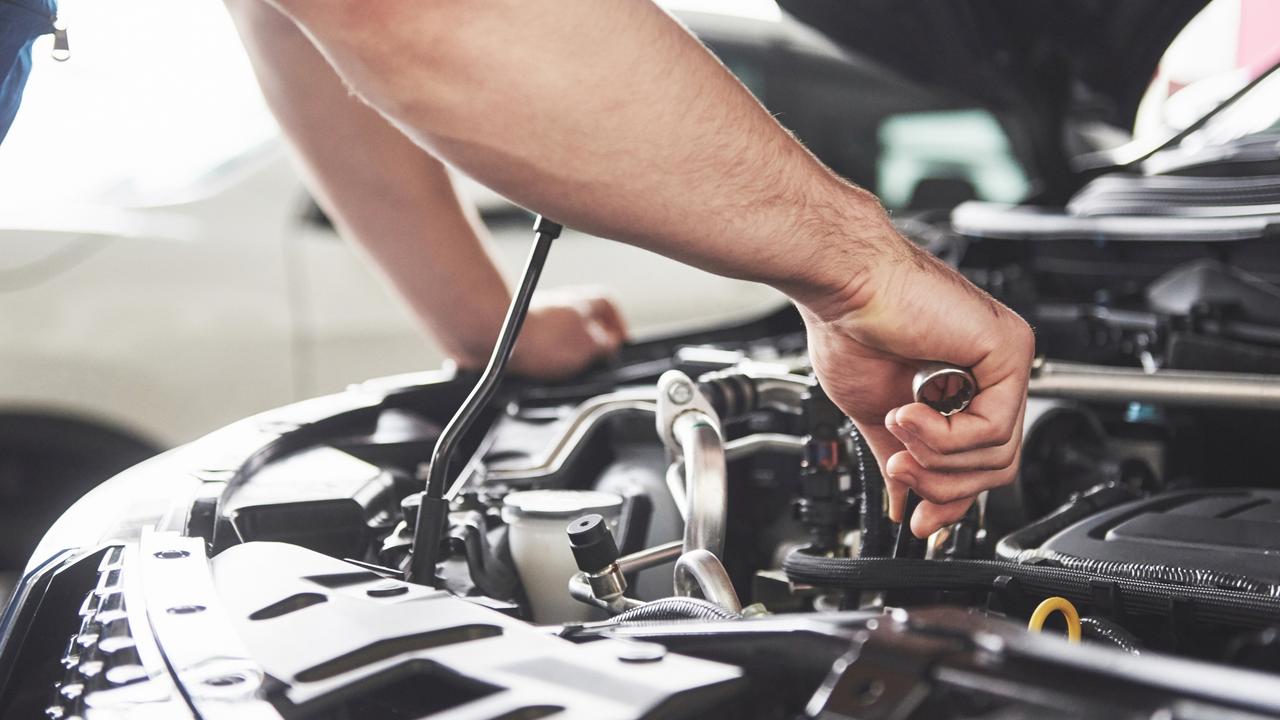‘Impossible’: Brutal reality of paying off student HECS debt
Jordyn Avery is a clever young woman with a stable job. But aged only 24, she’s facing what she believes will be a lifetime of debt.

Careers
Don't miss out on the headlines from Careers. Followed categories will be added to My News.
When Jordyn Avery used to think about her dream job in fashion, a lingering $76,000 debt was never part of the vision.
In high school, student debt was not a hot topic of conversation.
Rather, she and her cohort were encouraged to pursue whatever study would get them to their desired careers — and it was assumed everyone would go to university.
She had never considered her academic achievements would see her rack up tens of thousands in student debt by the age of 24, wondering if she would ever be able to pay it all off.
“It was definitely swept under the rug,” Ms Avery said.
“Currently, my HECS is $16,000 higher than my annual salary, so even the idea of being able to pay it all off feels completely unrealistic right now.”

Following her love for fashion and design to tertiary level, Ms Avery proudly earned two Bachelor’s degrees: Communication Design from Monash University and Fashion and Sustainability from Collarts.
While both degrees were rewarding and useful, the expense has been “haunting”.
“At school, everyone encourages you to pursue the subjects that you’re good at, which is exactly what I did – and I couldn’t see myself working in a different industry or in a different job or field,” Ms Avery said.
“You’re told to pursue whatever you want, then if it’s a creative industry the government hits back at you and goes “actually, have you considered something else?”
“I want to do this because this is what I am interested in and I’m passionate about it, and I shouldn’t be penalised for doing a creative course.”
Eligible students in Australia can pay off their degrees using a HECS-HELP loan – a Higher Education Contribution Scheme and High Education Loan Plan.

When a graduate begins earning more than $51,550, HECS repayments start coming out of their pay the same way as income tax.
Repayment rates start at one per cent of a person’s salary, but dramatically rise to ten per cent once graduates earn $151,201 or more.
While HECS debts do not earn interest, the sum is indexed annually on July 1 by the rate of inflation – meaning debts were indexed by 7.1 per cent last year.
This means even if Ms Avery had been making voluntary payments toward the debt last year, the total owed sum would not have decrease.
“My HECS went up roughly $4000 last year because of the indexation,” she said.
“By the time I would have paid a significant portion of it off, the amount that it went up by would have cancelled out that payment anyway.
“So it added a lot more money to what I have now paid off.”
Victorian independent MP Dr Monique Ryan recently launched a campaign to update, modernise and equalise the HECS system.
Starting an online petition, Dr Ryan has garnered more than 200,000 signatures of support with ease.
In the petition’s introduction, she critiqued the system as “broken”.

“Last year, over a million Australians saw their HECS debt grow faster than it was being repaid because of an unfair indexation system,” she wrote.
“The government got more money last year from our HECS debts than it did from its main fossil fuel tax.
“As we sign this petition, Education Minister Jason Clare is deciding what to do about HECS debts.
“We are calling on Minister Clare to change the way HECS debts are indexed.”
She said rather than “straddle” students with a “lifetime of debt”, studying and attending university should be celebrated and not financially punished.
“One option is for the government to apply the lowest indexation rate in a year, whether it’s wages or prices, so that no one’s debt rises faster than they can pay it,” she wrote.
“Young people are facing a housing crisis, a cost-of-living crisis, and a climate crisis – they shouldn’t be facing a HECS debt crisis as well.”
Ms Avery said the stress of HECS was far-reaching, even potentially preventing her from buying a home.
“It’s frustrating because even someone with a really good credit score will still be denied a home loan because of their HECS debt,” she said.
“The idea of buying a home or paying off the debt is completely unattainable for me, especially in the cost of living crisis.”

The Australian Universities Accord final report – which explored long-term solutions to the nation’s higher education system’s issues – overwhelmingly found that “significant change is needed”
“Small reforms to programs and funding won’t be enough,” the report concluded.
“Higher student contribution amounts … have significantly and unfairly increased what students repay.
“While the HELP system protects students by ensuring that the repayments scale with their
income, cost of living pressures and higher than usual inflation rates have increased concerns about the HELP system.”
Recommendations from the review included changing the timing of indexation to deduct compulsory repayments first, and ensure people’s debts did not grow faster than their wages.
Minister for Education Jason Clare addressed the review in a statement and said it would help to “build a better and fairer education system”.
“Under Bob Hawke and Paul Keating, the number of Australians finishing high school jumped from around 40 per cent to almost 80 per cent. That was nation changing,” Mr Clare said.

“The Accord says that in the years ahead, we will need 80 per cent of the workforce to not just finish high school, we will need them to finish TAFE or university as well.
“The Accord will help to drive this change. It will help us build a better and fairer education system where no one is held back, and no one is left behind.
“This is a plan not for one budget, but a blueprint for the next decade and beyond.”
Despite seemingly stagnating talks from the government, Ms Avery said it was an urgent issue and one that required haste to address.
“It’s not like I wanted to have this $76,000 debt for my education,” she said.
“I don’t think it’s fair that my HECS is so high because it’s not a representation of how intelligent you are, how hard you’ve worked, or anything like that.
“I literally cannot see a day where I don’t have HECS debt.”
Originally published as ‘Impossible’: Brutal reality of paying off student HECS debt




